By Nick Bowling, author of In the Shadow of Heroes, out now in paperback (£6.99, Chicken House)
The word “epic” is thrown around fairly casually these days. Its definition is broad, encompassing anything that is unusually large, or long, or impressive, or just good: a film, a book, or a view, a full English breakfast, a lap of Mariokart can all be “epic”. Its original meaning, though (“epos” in Greek means a word, a story, a prophecy, a proverb) is related to poetry and song. Epic poems exist in many languages, and are characterised by heroic exploits, weighty themes, often a wide geographical ambit. They look at human nature in a way that is both panoramic and exploratory. They contain, or try to contain, the whole world (it’s interesting to note how many epic poems are, almost as a rule, unfinished). In the Greek and Roman tradition, there’s a more specific set of conventions that need to be adhered to if you want your poem to be considered a true epic. This can make them a daunting prospect, but nothing could be further from the truth – by their universal nature, epic poems present us with people and situations that are instantly recognisable. They are intimate and moving as well as grave and bombastic. They are also funny. If you’re looking to embark on an epic journey of your own, here are five of the best epic poems in the Classical tradition.
1
Homer is the great fountainhead of Western literature. As a jumping-off point, the Iliad can get a little heavy-going, but the Odyssey is a non-stop romp. Its the story of Odysseus's ten-year journey home by sea after the Trojan War. Not only is it thrilling, and surprising, and moving, and scary, and funny, it's also amazingly modern. Considering its position on the timeline of literature, and its nature as an oral poem (Homer's poems were originally sung, from memory), it's full of narrative tricks that wouldn't be out of place in modern cinema. Not only that, but it's already aware of itself as a constructed work of fiction - it was post-modern two and a half thousand years before postmodernism was "invented".
2
"The classic of all Europe," as T.S. Eliot called it. Most, if not all, Western poets have laboured under the shadow of Virgil. The Aeneid tells the story of refugee Trojan prince Aeneas, bound by destiny to cross the Mediterranean and found the future site of Rome. It takes all the best bits of Homer's Iliad and Odyssey - wanderings, monsters, trips to the Underworld, ferocious battles - adds in one of the greatest tragic love stories ever told, and presents them in a 12 book melancholy masterpiece. Unlike Homer, Virgil wrote his poetry rather than composing orally, which brings a new level of polish and sophistication to the genre - according to his friends, Virgil could spend a whole day composing a single line of his 10,000 line epic and, by Jupiter, it shows.
3
A lesser known Silver Age epic, composed by Lucan during the reign of Nero, cut short at 10 books when the author was implicated in a conspiracy to kill the Emperor. The poem is what might be called an anti-epic - it deals with the bloody and shameful events of Rome's civil wars, and in doing so presents a dark and perverted version of epic conventions. Come for the big stars (Julius Caesar and Pompey the Great are the two dubious protagonists), stay for the Tarantino-esque ultra-violence and zombies (really). A twisted classic.
4
Not a Greek or Roman epic, no; but so Classical in its ideas, echoes, and even its syntax that it deserves a place on the list. Milton reproduces and re-imagines the story of the Fall (of both Satan and Adam) using the conventions borrowed from Homer and Virgil. Most fascinating is the impressive, magnetic, downright sexy character of Satan, who is presented as a Classical hero like Achilles or Aeneas. Milton was, as Blake had it, "of the devil's party without knowing it". Also look out for epic (in the traditional and modern sense) battles in heaven, featuring angels hurling mountains at each other.
5
No list of epic poems would be complete without a mock epic. Alexander Pope's poem - a slight thing at 6 cantos - applies the epic formula to an incident of non-consensual hair-snipping among the English upper classes. It was based on a real dispute between Lord Petre and Arabella Fermor, in which Petre had taken a lock of his paramour's hair as a keepsake, without her permission. Bringing all the divine machinery, mighty similes and heroic speeches of Homer and Virgil to bear on the story, Pope gently satirises the triviality and whimsy of the lords' and ladies' lives. It is beautifully crafted and laugh-out-loud funny.
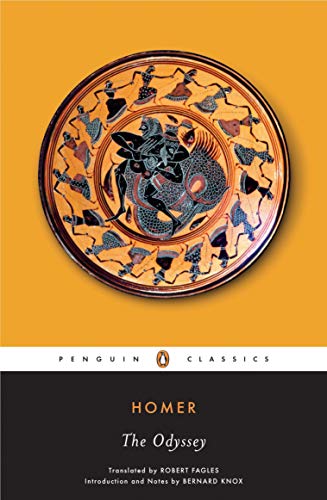
1
Homer is the great fountainhead of Western literature. As a jumping-off point, the Iliad can get a little heavy-going, but the Odyssey is a non-stop romp. Its the story of Odysseus's ten-year journey home by sea after the Trojan War. Not only is it thrilling, and surprising, and moving, and scary, and funny, it's also amazingly modern. Considering its position on the timeline of literature, and its nature as an oral poem (Homer's poems were originally sung, from memory), it's full of narrative tricks that wouldn't be out of place in modern cinema. Not only that, but it's already aware of itself as a constructed work of fiction - it was post-modern two and a half thousand years before postmodernism was "invented".
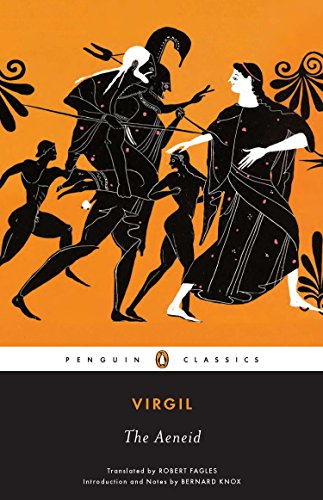
2
"The classic of all Europe," as T.S. Eliot called it. Most, if not all, Western poets have laboured under the shadow of Virgil. The Aeneid tells the story of refugee Trojan prince Aeneas, bound by destiny to cross the Mediterranean and found the future site of Rome. It takes all the best bits of Homer's Iliad and Odyssey - wanderings, monsters, trips to the Underworld, ferocious battles - adds in one of the greatest tragic love stories ever told, and presents them in a 12 book melancholy masterpiece. Unlike Homer, Virgil wrote his poetry rather than composing orally, which brings a new level of polish and sophistication to the genre - according to his friends, Virgil could spend a whole day composing a single line of his 10,000 line epic and, by Jupiter, it shows.
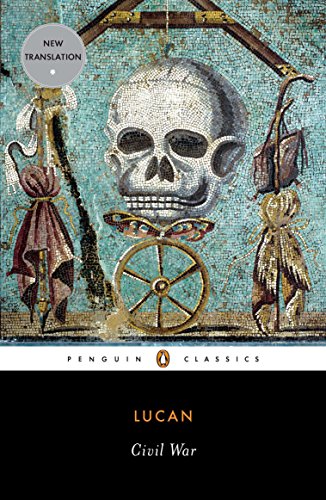
3
A lesser known Silver Age epic, composed by Lucan during the reign of Nero, cut short at 10 books when the author was implicated in a conspiracy to kill the Emperor. The poem is what might be called an anti-epic - it deals with the bloody and shameful events of Rome's civil wars, and in doing so presents a dark and perverted version of epic conventions. Come for the big stars (Julius Caesar and Pompey the Great are the two dubious protagonists), stay for the Tarantino-esque ultra-violence and zombies (really). A twisted classic.
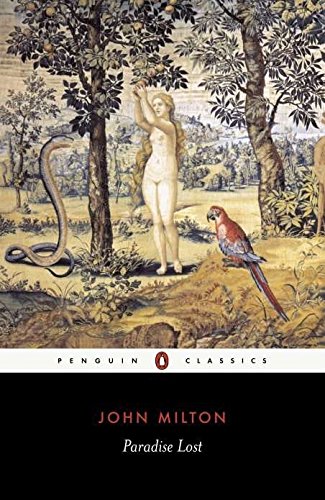
4
Not a Greek or Roman epic, no; but so Classical in its ideas, echoes, and even its syntax that it deserves a place on the list. Milton reproduces and re-imagines the story of the Fall (of both Satan and Adam) using the conventions borrowed from Homer and Virgil. Most fascinating is the impressive, magnetic, downright sexy character of Satan, who is presented as a Classical hero like Achilles or Aeneas. Milton was, as Blake had it, "of the devil's party without knowing it". Also look out for epic (in the traditional and modern sense) battles in heaven, featuring angels hurling mountains at each other.
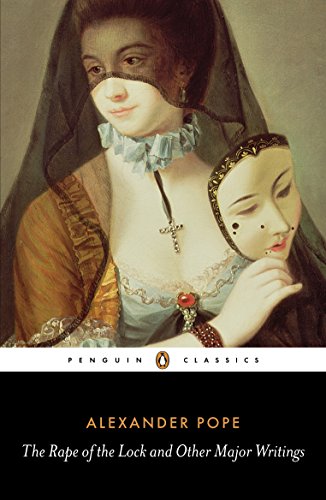
5
No list of epic poems would be complete without a mock epic. Alexander Pope's poem - a slight thing at 6 cantos - applies the epic formula to an incident of non-consensual hair-snipping among the English upper classes. It was based on a real dispute between Lord Petre and Arabella Fermor, in which Petre had taken a lock of his paramour's hair as a keepsake, without her permission. Bringing all the divine machinery, mighty similes and heroic speeches of Homer and Virgil to bear on the story, Pope gently satirises the triviality and whimsy of the lords' and ladies' lives. It is beautifully crafted and laugh-out-loud funny.
© Five Books 2026